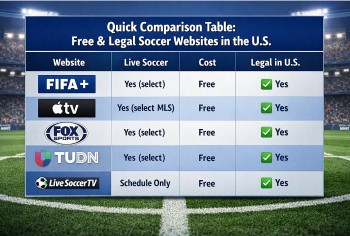Whom Are You Working With? A Quick Background Check on Possible Associates Could Let You Know
 |
| Confidence builds trust, and a great business is built on top of a foundation of trust |
That makes doing a simple background check on future or current associates essential. You don’t want to enter into a contract with a client, investor, or partner without doing your due diligence, especially when it’s your reputation on the line.
Protecting Your Interests
There are three primary reasons to run a simple background check before entering into an agreement with a new associate. One core theme connects all of the reasons – you need to protect yourself.
Confirming Identities
Sometimes a person may not be who they say they are. That’s not to say they are lying or even being malicious in any way. It could be a simple mistake. Say they gave you their name when all of their business documents use their partner’s name, or they go by a nickname that isn’t the same as the name they sign their checks with.
It’s important to simply double-check for two main reasons.
Contract Enforcement
Contracts are essential parts of operating in the modern world. If it’s not in writing, it may have never existed.
The problem is that a contract is not enforceable if it’s an agreement between you and someone who does not exist. This is often the most benign mistake a person can make. They reach out to you as Shirley Temple, but their actual business name is STemple LLC. If you enter into a contract with Shirley Temple, that could cause problems down the road.
Usually, it’s a simple thing to remedy. You do absolutely want to know for sure before you sign the document, though, and the way you could know for sure is by running a quick background check.
Do They Have the Power?
The second reason to double-check a future associate's identity is simply to make sure they actually have the power to enter into an agreement with you. This is the first step in weeding out bad actors.
There are times when an employee may attempt to enter into a contract with you with the assumption that they have the authority to act on behalf of their company. A simple check will tell you whether or not that’s true, and it can be an easy thing to remedy.
Or it can tell you that someone is trying to take advantage of you by pretending they have that authority. You do not want to negotiate a deal with someone only to find out that they do not have the power to uphold their end of the deal.
Assessing Risks
Minimizing risk is Business 101, so before you enter into an agreement, you should know what the risks are. Accepting a large contract with a company that is currently in court for bankruptcy is probably a risk that you don’t want to take.
There will always be some issues with a background check. The odd litigations for minor issues or early monetary problems are often standard business costs. However, major litigation or other major red flags may make you want to shy away from potential associations or at least make you charge more upfront.
Familiarizing Yourself With Potential Advantages
It’s not all bad news. For example, you may vet a potential investor and find out that they have extensive goodwill with charities or that they recently were commended for a major project. Knowing those things ahead of time can give you insight into how best to communicate with the potential associate and tailor your communications effectively.
That being said, it could also be bad news. If you find out that a potential investor is having major marital issues, you may want to avoid that topic during meetings. The more information you have going into negotiations, or even a simple business lunch, the better off you can present yourself.
How to Perform a Basic Background Check
The good news is that in this age of information, performing a simple background check is trivial.
Use a Service to Gather Information
There are numerous information-gathering services that you can use. Information.com’s background check tool is one such service, and it can provide you with identity authentication, bankruptcy and lien information, civil records, and even traffic violations.
Even if you use a service like Information.com and it comes back squeaky clean, the peace of mind it will give you is worth more than gold. With how simple and fast a check like this can be, there are not many downsides to doing it.
Key Information
A background check through a service like the aforementioned Information.com will yield a lot of information that you probably won’t care about in a business setting. For instance, it’s probably safe to ignore a person’s dating profile if you are trying to enter into a contract for new work to be performed.
However, there are some key details that you should receive. These are the biggest things to look for.
• Does their name match the name they have been using to contact you?
• Do they have a criminal record?
• Are they currently involved in a lawsuit?
• Does their education match what they claim?
• Are there serious red flags that could affect your reputation, like a sex offender status?
One or two minor mistakes probably won’t amount to anything. A misspelled address line or an optimistic interpretation of an educational background won’t spell disaster. A fake name, extensive criminal record, or outright lies may.
Follow-Up on Details
Once you have the information, it’s up to you how far down the rabbit hole you want to go. There is probably little need to dive into the trove of Facebook photos a client posted about their vacation, but a little bit of diligence to find out what kind of lawsuit they overcame may help you avoid unnecessary risks.
Most of the red flags that come up in a background search will be tied to public records, meaning that finding more information is often as easy as searching Google for specifics.
Don’t Overstep
Doing a simple background check on someone is usually legal. Unless you are screening an employee or vetting someone’s financial qualifications, which would fall under the guidelines of the FCRA, the information you receive is simply another tool you can use to build relationships.
However, it can sometimes be easy to overstep implied boundaries. It can do immense harm to your reputation if a potential partner feels that you are stalking them or have connected them against their will. In fact, not only is that unethical, but in many places, it is illegal.
A simple rule to follow is the old golden rule. Don’t do something to a potential associate that would upset you if they did it in return.
Assessing Your Findings
Once you have gathered the information and taken down the details, it’s time to assess the situation. Only you can decide what risks you are willing to take. Is a traffic violation worth scrutiny, or is the potential to have a great new associate too great? Just be sure to be the one who drives everyone to lunch.
Regardless of what you decide, having information at your disposal builds confidence. Confidence builds trust, and a great business is built on top of a foundation of trust.
 50 Fun Things To Do When You Are Bored Working Online From Home 50 Fun Things To Do When You Are Bored Working Online From Home Working online is popular these days but what if you get bored with working from home? Read on to know the fun & useful things ... |
 Top 10 Best Cities To Travel And Work Remotely In The World Top 10 Best Cities To Travel And Work Remotely In The World Working remotely has become a trend around the world, and these 10 cities can be your perfect destinations for working and living in the future. |
 How to Win Sympathy in the Workplace Base on 12 Zodiac Signs How to Win Sympathy in the Workplace Base on 12 Zodiac Signs Making friends and winning the hearts of people at work is the key to success for all zodiac signs. |























